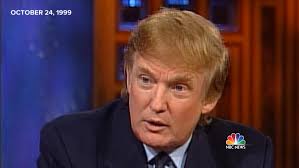Defining Trump: Understanding His Impact in Politics

Introduction
The term ‘Trump’ has become synonymous with a range of political ideologies, controversies, and movements over the past decade. As the 45th President of the United States, Donald Trump has left an indelible mark not only on American politics but also on global dynamics. Understanding who he is and what he represents is crucial for anyone interested in contemporary political discourse.
Trump’s Political Identity
Donald Trump, a businessman and television personality, transitioned into politics with his 2016 presidential campaign. He positioned himself as a populist candidate, challenging the political establishment and emphasizing policies that resonated with many American voters. His campaign slogans like “Make America Great Again” and “America First” articulated a vision of nationalism and economic protectionism.
Major Policies and Controversies
Throughout his presidency, Trump enacted several significant policies, including tax cuts, deregulation, and strict immigration reforms. His administration faced numerous controversies, including the impeachment trials, handling of the COVID-19 pandemic, and the events surrounding the Capitol riot on January 6, 2021. Each of these events further polarized opinions on Trump, making him a pivotal figure in discussions about American democracy and governance.
Trump’s Influence on Current Politics
In the years following his presidency, Trump’s influence remains strong within the Republican Party. Many candidates seek to align themselves with his policies and style of governance. His endorsement can significantly impact election outcomes, indicating a reshaping of traditional party lines. Observers note that the Trump-era politics are not just a temporary shift but may define Republican strategies for years to come.
Conclusion
Defining Trump goes beyond merely describing his actions or policies; it involves examining the broader implications of his leadership style, the ideological shifts within the United States, and the future trajectory of American politics. As discussions continue around his influence, legacy, and potential return to office in 2024, understanding Trump is essential for any analysis of contemporary political issues. Readers are encouraged to critically engage with the complexities surrounding his figure and the ongoing evolution of political affiliations in America.









